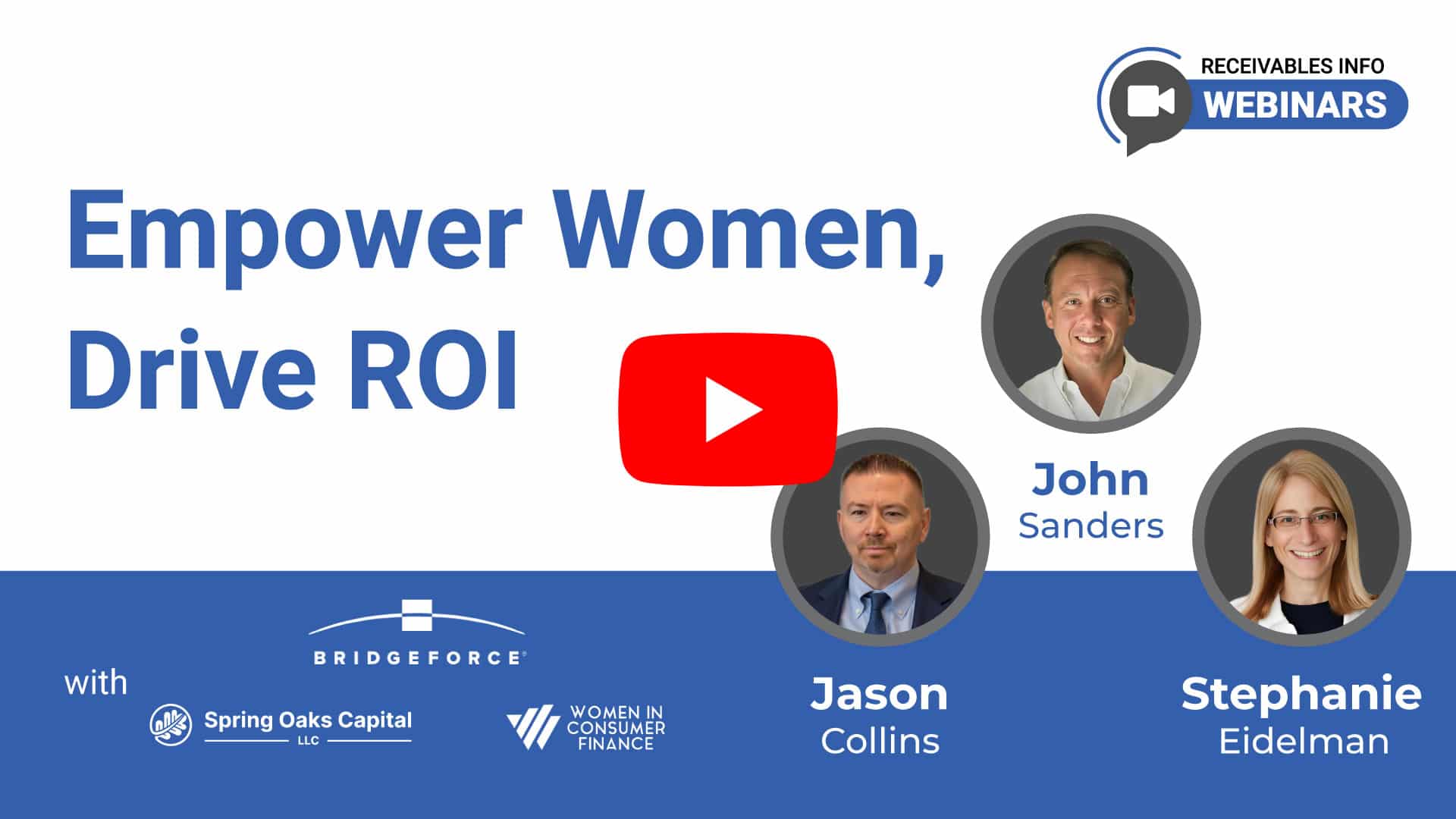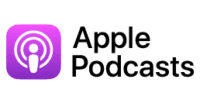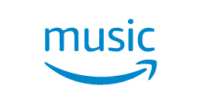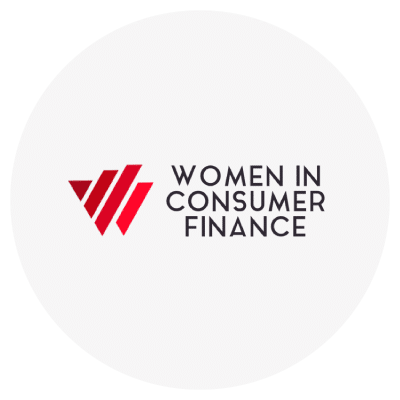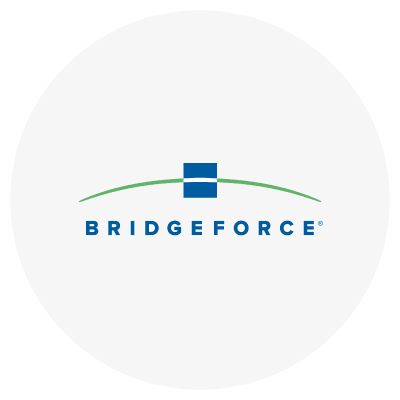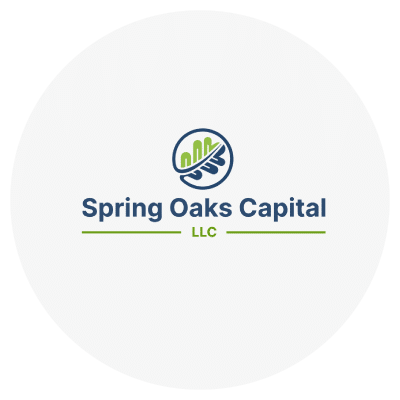What’s the ROI of investing in women leaders? Stephanie Eidelman (Women in Consumer Finance) joins Adam Parks with John Sanders (Bridgeforce) and Jason Collins (Spring Oaks Capital) to share insights on building confidence, driving diversity, and creating real competitive advantage.
Adam Parks (00:00)
Hello everybody, Adam Parks here with another Receivables Info webinar. Today, I'm very excited for this particular webinar because as I've gotten to know the legend Stephanie Eidelman a little bit over the last year and more about the Women in Consumer Finance event, I'm really excited to have my team there participating this year, engaging with all of the great things that come along with that event. We're not going to call it a conference, we're going to call it what it is, we're going to call it an event.
And today I've got two other gentlemen with me, Mr. John Sanders and Jay Collins, who are going to talk to us a little about their experience with their organization starting to participate in these events. So I want to thank all of you for coming and having a chat with me today, sharing your insights and helping me as a leader prepare for what I should expect from my team from this particular event.
So absolutely, we'll really do appreciate you coming on today. So to kick this off here, Stephanie, why don't we start with you since we can lay the groundwork of what Women in Consumer Finance really is. But let's do quick backgrounds through. Could you tell me a little bit about yourself and how you got to the seat that you're in today?
Jay Collins (00:52)
Thanks for having us.
John Sanders (00:54)
Thank you.
Stephanie Eidelman (01:10)
gosh, yes, absolutely. So a little bit about my background is that I had nothing to do with financial services whatsoever. I started in theater. I was a stage manager. I worked in entertainment, in live entertainment. I was a producer of concerts. And then I worked in manufacturing and aerospace. And then I worked in the internet starting.
at startup companies and then in the publishing industry. And finally, I made my way into financial services in the debt collection community. So I've been a lot of places and doing a lot of things. And I started Women in Consumer Finance in 2018 because we saw a need in the industry. And I can get to that, but I thought I think I'll wait until we get our introductions done.
Adam Parks (02:02)
Sure, sure, and we can dig more into that. I'm just gonna go in the order of how I have people on my screen. Jay, do you wanna go next?
Jay Collins (02:09)
Yeah, absolutely. I'm Jay Collins. I am a co-founder and Chief Operating Officer for Spring Oaks Capital. We're a national debt buyer. Prior to founding Spring Oaks in 2019, I spent 20 years at a combination of MB &A Bank and Bank of America in various operational roles, managing internal teams, first-party vendors, third-party vendors, legal recovery, et cetera. Again, thanks for the invite today. Glad to be here with you guys.
Adam Parks (02:34)
Yeah, we really do
appreciate it. And John Sanders, could you tell everyone a little about yourself and how you got to the seat that you're in today?
John Sanders (02:40)
Sure, thank you. And again, I also echoed our thoughts. Appreciate the invitation. Good to see everyone. Been with the company Bridgeforce for over 25 years. One of the founding members. Bridgeforce is an advisory firm in the financial and consumer lending industry. So that's how I had the privilege of getting to meet Stephanie and Jay.
Prior to that, I came up through banking and actually I realized Stephanie, as I listened to you speak, a little bit of a synergy. I had a little bit of a music background when I started back in the, when I wore younger man's clothes.
Stephanie Eidelman (03:11)
Yeah
Adam Parks (03:12)
Fair. Well, we really do appreciate you coming on and participating today as well as Stephanie and I were talking about, you know, engaging my team in the process and what that's going to look like. And I really wanted to talk to some other people that have made those types of investments into their staff. And clearly, it's it's already started to bear fruit for both of you. And I'm sure that's part of the reason that we're going to have the discussion today. But let's start by kind of framing what this actually is in terms of an event. So Stephanie, help us understand from a even not necessarily just from an industry perspective, but from a human perspective, what are you trying to accomplish with this event?
Stephanie Eidelman (03:48)
Yeah, yeah, absolutely. So here's something that I've learned that changed how I think about talent development over the years. The most capable women in our industry, really, and often in any industry, are often making themselves smaller than they need to be. And I'll explain what I mean by that. It's not because they lack skills or ambition, but honestly, because they don't feel like they belong.
And when, you know, I spent, I really spent many years doing this myself. When, when you don't feel like you belong, you second guess yourself, you don't speak up in meetings, you don't pursue stretch assignments, you leave a lot of opportunity on the table, both for yourself and for your company as well. And, but when you do feel a genuine belonging and connection, you show up completely different you take up, especially as women, but I'm sure this applies to men as well. You take up space, you raise your hand, you make calls that drive results because you have a confidence that is needed for that. And that's why I built Women in Consumer Finance the way that I did. It's not just about networking at a cocktail hour or listening to motivational speeches. It's really about creating the conditions where Women build real relationships and feel like they have a tribe that has their back, whether they're at their own company or somewhere else. Because in our industry, really any industry, relationships are everything. And when someone responds to your email or takes your call because they genuinely know and trust you, that's when business gets done. And that's where those opportunities are. And so the companies that invest in this, helping their women, in showing that they are investing in their employees by putting their money where their mouth is, you know, behind that and giving them really deep experiences. You know, they're not just being nice by doing that, but they're building a competitive advantage through women who show up as their full selves and take their seat at the table and raise their hand and do those stretch assignments and pull their full weight for their companies. it supports everyone all around and that's really the impetus behind this event.
Adam Parks (06:12)
It sounds like something that really can translate across industries and so glad that we have an opportunity in the debt collection industry to kind of start looking at this. Jay, from your perspective, how long has your organization been participating in the women and consumers?
Jay Collins (06:30)
We were founded in 2019 and we started, believe in 2020, I think was our first year of involvement and really taking a lead role in that involvement. And look, the reasons are many, but, and I had numerous conversations with Stephanie over the years about it and our support and the event and the impact it's had on our people, but it's still, I wrote down a couple of notes when Stephanie was talking and it's so powerful to hear her describe you know, women making themselves small, smaller than they are. And, you know, don't feel like they belong. And that's, that's powerful. And, you know, it's, it's true. And we hear that from, from our people. And, this is such an amazing program that gives people the courage, the inspiration to step out there and show their true selves and what they're really capable of. We're just proud to be able to continue to support it.
Adam Parks (07:23)
is fantastic. And John, from your perspective, you know, what kind of drove you towards this? And how have you started kind of measuring that result internally?
John Sanders (07:33)
Sure, I'm trying to think when we got involved, it feels like since inception when Stephanie brought this this form online and we've had the privilege of knowing Stephanie through our industry travels for some time now. In terms of measuring success, this is an investment for us. It's an investment in time and an effort, of course, but. I guess some investments are best measured on a balance sheet. This is not one of them in my mind. This is measured by the energy it brings and the momentum it brings. And certainly I can share examples of that based on what our colleagues have brought back to our organization as a result of their participation in the forums.
Adam Parks (08:12)
like it. You know, one of the things that as I was preparing for this that I saw was that companies in the top quartile for gender diversity are 25 % more likely to outperform their peers. That was from a 2023 McKinsey study that I'll drop into the chat here on LinkedIn.
I think it's interesting when you start looking at the diversity of thought and what that ultimately can start to lead to as an organization. I look, I started as a one man shop, I look around now and it's mostly female in our executive suite. And I think that's partially because we're a creative organization. And that's just how the people have grown up through it because of
I've tried never to really look at the individuals and to look at the qualifications and to build the right roles for each person in our organization. But I'm a tiny organization. And I know, john, you're, you're a larger organization than I am. But Jay, you're in a much larger pool in terms of total staff. How do you go about selecting the right people? Because there is an investment to this. But how do you identify the right people within your organization to participate in a program like this?
Jay Collins (09:16)
Yeah, happy to answer that. And before I do, though, it resonates with me when you say, the makeup of your team, your leadership team, primarily women. It's the same here at Spring Oaks. have approximately 360 employees. But with the exception of our general counsel, our entire compliance leadership team are women, every one of them. Now, we didn't set out intentionally to make that happen. But I really think it's a credit to our hiring and promotion process that these women are seeing and have a fair opportunity to advance. And it's not really just the compliance side. You look at it and say, you know, maybe it's because of that type of role, but 65 % of our leadership roles on the operations side are also, you know, women as well. So I'm really proud of that. You know, I think it's just making sure your processes are free from any of that bias and really seeing the potential in people, seeing the good instead of where maybe may be developmental opportunities and investing in those people and helping them continue to grow and improve over the years. But back to your question, professional development is just core to everything that we do here. really, we take it personal. We're proud to promote from within and help people earn opportunities. And as far as it relates to Women in Consumer Finance, it really starts with exposing all of women leaders to the virtual sessions. So we have a committee led by Katherine Calco and Tracy Montoya and we rally around the virtual sessions and we invite our entire female leadership team to participate in those. They're remote folks, style and remotely. Those in the office gather together in our executive conference room so they not only get to digest the great content, but they also get to network and surround themselves with people from other departments. have ops, we compliance, we have acquisitions, have finance, you missing a ton of others, but they're all there and that's part of the experience as well. So that's a tremendous, you know, benefit with the virtual sessions and it allows us to include so many more people in the process. And then through that, through people raising their hand and wanting to attend in person, through nominations from the management team, we go
Jay Collins (11:24)
back to the committee and we try to select six to eight people each time to participate in the in-person event and then really try to make it a mix of experience. There'll always be one or two first-time attendees and they're surrounded by others from the company that have been there and have the experience. It can be a little bit overwhelming, you know, the first time. So these people now have the support of others within our organization that they know and they're with to help them through those first couple hours, first half a day, whatever it is until they get acclimated. And then we really see when those women go back for year two, their engagement level is much higher. They understand it, they're excited about it, they've met people and networked and are excited to see those people again. They're more engaged in the process and then Typically by year three, they're taking a bigger role in the event. They're stepping up as either a leader of a team or presenting or something to that effect. But it's something that is part of us year round.
Jay Collins (12:22)
It's not just, hey, let's get excited for the event. We had a great time in Charlotte or wherever the location was this year, and then can't wait till next year. It's really, you know, the in-person event, the virtual events, and what are we doing between the virtual events and the in-person event, you know, to continue that learning process, the networking process, the growth process. So you really have to be all in on trying to get the most out of the investment.
Adam Parks (12:48)
I like that you know as we were preparing for for this session today, one of the things that I was reading about was how structured programs like this actually boost retention by up to 30 % and that was coming from a LinkedIn learning study that I believe got released in 2024. And again, they updated it for 2025. I just added that to the chat as well for anybody that's watching. And for those of you that are watching live, you know, we're happy to answer questions and things as we continue to go through it. I'll keep my eye on the chat so that nobody else has to worry about it. And I'll ask those questions as they come through. But john, right, like you're your process for nominating or selecting the people that are going to participate in a program like this is probably a little bit different. Can you tell us how it is that your organization looks at it.
John Sanders (13:31)
Yeah, sure. Well, I would start by saying some of the synergies that we have with Jay is that it really is a year round cultural component at this point. So it's a mix of the in-person meetings, the virtual meetings. And as I now understand, a number of our colleagues have some of their own cadences established with subgroups of folks that they've they've met from the organization. So that's really enjoyable to see.our nomination process is a little less formal and structured in that again being a bit boutique and small and mighty as i like to say we try to expose all of our female colleagues to Women in Consumer Finance and so we have essentially now been with us long enough that they have a bit of a rotation through the particularly the in-person forums and many of them will go at the same time. that's when we talk about the investment, we're very much committed to that and then there's a lot of benefit that we get out of that because one of the things that we do have that's structured is our business model is driven by the nature of it where we're essentially scattered all over the place at any given time. We're on various client sites, we're traveling.
We're usually under demands with our clients with their deadlines. So years ago we established a forum that is going to sound underwhelming now, but it's simply a business management meeting. We would meet weekly just to sit down and talk about the business and eventually morphed into simply, I guess, business is a little bit redundant. So it's a weekly management meeting. have our every week we affectionately call it but it's an opportunity for us to actually sit down and understand who is doing what activity for the week and where they're traveling and What insights are they gathering? And they bring that to the table and we share and it's also a benefit because it keeps us Hopefully nice and sharp and and we can continue to do good things for our clients as a result, but I particularly enjoy when my colleagues come back from woman consumer finance and they share a number of the observations and and in bits of the experience because we sometimes i can dominate the lion's share of that that meeting and what's nice about it is that that really lifts the entire team. So it's not just about the women in our company. It's all of us getting that benefit. And then if you think about the impact it has on industry, we can take that out and be more effective with our clients. So it really does move the needle. And I particularly like when I hear of some of the solutions that are brought from those forums and again with you know obviously with respect to confidentiality and non-disclosure that's a given but it shows that you're not just stuck in the mud right when you're actually bringing solutions forth that's real change in progress
Adam Parks (16:25)
Now, I like that approach. And as we sit here on this call, and I look at Stephanie being the only woman here who's talking to us about the Women in Consumer Finance, I'm interested to see how your different organizations have gotten the buy in of the entire C suite. You know, was there was there a conversation, right? Because we're not we're not measuring this in terms of how many leads, right? It's about what are what change are we able to implement? Or what change are we able to enable within the team that we're trying to grow? And that's a The quantitative versus the qualitative. And I think this is very much a qualitative discussion. So how do you get the accountants and those people that are generally a little more, let's say, in your business to buy into the general premise?
Jay Collins (17:11)
Yeah, I'll jump in first, Adam. I think for us it was easier because we were so small, right? We started from scratch. The four founders were involved in the CRC from the beginning with Stephanie and you know, Women in Consumer Finance was just getting started right before we were founded and it was a natural fit for us. And, you know, we were we thought that there was such great alignment to what we were trying to do for our internal people development. So we were we were all in and then it continued to grow from there. And, you know, there's a there's a multiplying effect to this, right? When when women are empowered to lead, often become mentors themselves, right? And they want to give back, right? And find the next generation of women within the company, you know, to bring with them. And that's really what we've seen, right? I can spend this entire time together sharing stories of some of the women within our organization that have stepped into new roles in departments they've never been in before, and have earned opportunities that Maybe they wouldn't have in the past and have really made the most of them and our people were extremely proud of. And we talk about it all the time and we celebrate it. It's really an incredible thing. I said it's personal to myself, it's personal to the rest of the leaders. We're fortunate to have great leaders like Tracy and Catherine that in addition to their busy schedule step up and lead this for us on a committee level.
So it was easy for us because we were committed from the beginning. We knew the benefit in line to our core values and what we were trying to do. But as you start to see those early successes, the greater team as we grew saw it and really bought in and supported it as well. So a little bit easier for us, but we're glad we did and remain extremely supportive of the program.
Adam Parks (18:58)
So John, how about from your perspective? Was there a discussion internally? How do you enable the organization and enable the people within the organization and align that top leadership?
John Sanders (19:11)
Sure. Well.
similarly, we we have a management partner team and we just simply prioritize it and We do evaluate You know where we want to direct our efforts To ensure that we are continuing to participate in in WCF So it's all very conscious decision, but I say right now it's really got to the point where it's almost habit forming so we just think of WCF as being a very important part of what we do I've never attended a WCF forum for obvious reasons, but I feel like I've been there vicariously through my colleagues and the overarching themes that I continue to hear are certainly empowerment, the right setting, something that's comfortable, again, meaningful exchange of ideas. Obviously networking's important, but we don't think of this as the networking in a traditional sense, like developing a new business. I mean, if that happens, that's bonus, but It's very important, Jay mentioned values, similarly our values, this dovetails quite nicely with it. And I would say that the values are simply having an environmental culture and industry where every voice can be celebrated. And this is a great forum to enable that. And so with that, makes it to be a very easy decision. from there, it's a It's one where I think everyone has brought back some kind of experience that we've all gotten to get some benefit from.
Adam Parks (20:38)
That all sounds fantastic. Stephanie, for, you know, it sounds like these guys had CRC experience, right? I did not. And like we've kind of developed a relationship that's prompted me to start participating. Help me understand what advice you would give to other leaders in the space or other people that were in a position like mine to encourage them to enable their team. You're on mute. I think that's the most common Zoom phrase ever.
Stephanie Eidelman (21:03)
Yes, I know. I was hearing noise and I muted myself and I shouldn't have. You know, the most important thing is to recognize that there's a return on this investment. And it's not, this isn't, again, it's not a nice thing, although it's not bad to do a nice thing. But we're all in business and so you should expect to receive something in return. we really, two things I would say.
One is the CRC experience that Jay mentioned that stands for the Consumer Relations Consortium, which is an industry advocacy group that I started way back when. I think it was 2012 when that started. And what I think Jay experienced and others and John too joined that group as well is the nature of the intentionality that my company puts into our events really produces results. What that looks like in Women in Consumer Finance from the start is that everyone gets assigned to a team well before they arrive. They've met their team before they arrive. And so when they get there on site You already know people.
Stephanie Eidelman (22:16)
And you can start, you don't have to lose necessarily that first half a day finding yourself or knowing who to talk to. I really designed this for me as an introvert and how I would want to experience an event and meet people and make a difference. And so first and foremost, that means not arriving to an opening event cocktail party where you walk into a room of 400 people and you get a glass of wine and you say, here.
Network, you know, and there's nothing worse for me than having to figure out who to walk up to. It's like junior high school all over again. So we solve problems like this and the fact that you're on a team, intentionally not with everybody that you came with because you can meet those ladies back at the office. We
Stephanie Eidelman (23:09)
push you out of your comfort zone. We assign you to people who are gonna be meaningful to you, because maybe they do the same kind of role that you do, or maybe they're at the same career stage that you are, or maybe they're introvert or extrovert. We put a nice mix on each team so that you don't have everybody trying to talk and you don't have nobody trying to talk.
Adam Parks (23:33)
The silent team.
Stephanie Eidelman (23:34)
We think about all of those details. So it's really not, you know, send people and hope that something might happen. We make sure that something's going to happen. And we have measured that. So in our last measurement from the attendees from 2023, so we gave them a full year and we said, OK, what results did you get from this event? And I will share that almost 60 percent have taken on new responsibilities that were previously outside their comfort zone. That's huge, huge. A big jump, almost 40 % say that they've been recognized by their leaders for contributing at a higher level than before. One in four within a year receive a promotion at their company. Almost 40 % come back and share those tools like you all were talking about.
Adam Parks (24:06)
Big jump.
Stephanie Eidelman (24:24)
They specifically share them back with those in the company. So it's not just the people who were there on site that got the benefit, but more broadly in the firm as well. One in five obtain a new client directly from relationships built at the event. Now, let me just tell you. So one in five is 20%. Only 13 % of the attendees are in sales or business development. 20% are able to obtain a new client after a year. So that is impactful. You don't necessarily even get that by going to an event where there's an exhibit hall and it's a trade show. And maybe you're meeting largely with your existing clients and that's valuable too. But it's hard to do. Nobody's signing business at any event. It's all about following up on relationships built and that's what we focus on.
Adam Parks (25:12)
you
Stephanie Eidelman (25:17)
So I'll just share a couple more things and hopefully that answers your question. 52 % begin mentoring others internally that they hadn't before. ⁓ One in five end up speaking on a webinar or a conference for the first time. Not just there are others who do it again, but for the first time, 20%.
Adam Parks (25:19)
Please of that.
Stephanie Eidelman (25:42)
That's big because that represents your organization. That's your name out there when someone on your team is speaking for you. that's Yeah.
Adam Parks (25:52)
personal growth, right? Like you're demonstrating that the people around me are now feeling more comfortable and confident as a thought leader in their space and you're enabling them to have the confidence to go do it because look, I do this for a living. I don't like being on camera or in front of the microphone at all.
John Sanders (26:08)
You
Stephanie Eidelman (26:09)
Yeah,
yeah, absolutely. So all these things contribute to the fact that, again, what I said in the beginning, know, so many people make themselves smaller because they don't feel like they deserve to take up space or because people don't see them or appreciate what their unique value is or for whatever reason they feel they're not deserving. And we create an environment where they feel like
They can ask the dumb questions. know, a lot of women maybe feel like, well, it's a mixed company. I'm not going to ask that question. I'm going to look stupid. We create a really safe space. You're not in front of only the people from your company where there's a bigger consequence to looking stupid that way. We give people that, you know, that team literally gives you a team that's going to cheer for you. And they do.
It's amazing. It's amazing. And these teams have stayed connected over the years. think Jay mentioned that he or no, it was John, I think, who said that you learned that people are still having that catch up with people that they met previously. That's that is huge. People have that cheering section that doesn't judge them, that supports them. And also they get to meet women not only.
you know, other compliance people or other operations people. And when somebody like Jay says, hey, how are other companies dealing with this? You know, they have somewhere to go and find that out. Or they say, well, you know, I'm dealing with aging parents and I'm challenged by that. How can I, you know, we connect people who have shared issues like that or.
Stephanie Eidelman (27:50)
or single moms or moms of special needs kids or a whole variety. Military spouses, we make it possible for all these different types of groups to kind of find each other, both around professional things and personal things, and that builds relationships. It's interesting because those are not conversations you would generally have at a conference. You might pick up on little pieces of that, but relationships are built on shared experiences. And if you're creating a shared experience that allows these people to come together, the bonds of relationships that come out the tail end of that are very, very different. I mean, even sometimes it's the simple things, right, but it is all about that shared experience could be a dinner or concert, it could be, you know, just being in the same Uber to the airport from the conference or whatever. But I've actually some of my best friends in the space I met in like random cabs, because we were both going to the Chicago airport from whatever conference
Stephanie Eidelman (28:17)
Yeah.
Adam Parks (28:44)
That's right.
Stephanie Eidelman (28:45)
Yeah.
Adam Parks (28:45)
I think it's interesting to see how the creating those situations for those unique experiences and conversations allows those people to come together. And I'm curious, when you and I did the last podcast that we had done together, I had made a comment that I'm going to bring back up because I want to get Jay and John's kind of response to this. I looked at it when we started talking about engaging Catalina Dawson and Leah Farrell into the Women in Consumer Finance and having them participate. I said, I can teach them how to be a debt collector but I can teach him the industry, but I can't teach him how to be a woman in this industry. And I need to get out of the way and I need to find somebody who can. And I've been blessed and lucky to have some really great friends that have kind of moved us towards Women in Consumer Finance and provided some of that mentorship for my team through the years. But there's limitations on what I'm capable of. Like, let's be realistic. know, Jay, John, any thoughts on that one?
John Sanders (29:38)
I could I could offer a thought on that but but I would just close another thought talking about the the values and how that ties to the network networking that Stephanie talked about You know our values when I said this isn't really intended for developing new business for us. You know our values are you know
I know our culture and what's important to us within the walls of our company, but what's equally important in terms of what goes in, goes with in on within the walls of our company is what goes on outside the walls with our clients and more importantly, community. So this is a great opportunity and we can talk more about how that works, but some of the philanthropic things that Women in Consumer Finance plug into is also very, very good. And then when I think about networking in general, networking is like a muscle, right? The more you, the flex it, the stronger
it gets and I was not aware of that statistic that Stephanie mentioned in terms of that 20 percent
close rate if you will on business but it does not surprise me because people do business with with those whom they particularly like and especially trust and that's our business our business is built on you know sounds a little cliche but trusted advisor model so that that is something that i have seen direct benefit from fact uh... one of my colleagues trisha why it was invited to speak in front of an event as a result of her connection in women consumer finance and she brought me along for the ride so But anyway, in terms of your specific question, I think that through this experience and also being a father of three daughters of my own, it has sharpened my awareness of the importance of creating opportunities know speaking for even my daughters they're in between high school and college young ladies as they blossom into young women and what they'll take into the profession and whether it's consumer finance or other industry and I've also come to appreciate the what can potentially happen in the absence of that in in the absence of those opportunities or the failure to create those opportunities so i think that would be my my view on on that and why i believe that Women in Consumer Finance really fills a really important role in in the its function
Jay Collins (31:49)
Yeah, I'll jump in. It's
It's an incredible program. It's more than the once a year event. And it's something that we're not capable of replicating completely within the company. Bringing everybody together. All the Stephanie shared about matching up personalities and making people feel comfortable to connect and to share. And the topics that I hear about that I didn't expect.
you know, to hear about like caring for an elderly parent. When one of our employees came back and talked about that, was, wow, I didn't really ever think that would come up, you know, at an event like this. But there are so many people that are dealing with that. On top of their career, on top of raising a family, whatever else is, you know, is on their plate in addition to that.
Having that scene that there's a common bond with somebody else, having someone to talk to about those type of challenges that can relate and have direct experience with it is really incredibly impactful for people.
I just I love seeing that they come back from the event very energized. I see the energy coming out of the virtual events. I don't know what the full topic was. Definitely the most recent one, but I think it had to do with something with physical and mental exercise. But I walked out onto the floor a couple hours later and had two teams of people that were stretching and you know exercising. I left alone. didn't get too much into it other than they were sharing what they learned from the virtual event. And there's so many examples of people bringing back their experiences and sharing it with others. And that is a critical part of it because we can't send everybody. I have, I'm gonna guess 260 female employees in my company. can't send them all to the event, I can't send them all to the virtual event. But by sending our leaders to the virtual event and to the in-person event, and then challenging them to make the most out of that investment and bring it back and help drive it through the organization, that multiplying effect that I talked about earlier. That's how we benefit on a greater scale. And they've really embraced that opportunity to come back and not just selfishly say, hey, I was able to attend and I got a lot out of my attendance there, but to bring it back and then share that with others. and help others on their path and on their journey. It's really, again, a beautiful thing to see.
Adam Parks (34:21)
I might be picking up a fan on your side, Stephanie. It was Jay's microphone too. So one of the other things that I saw as we started planning for this, was reading through something unfortunate that said that women hold 50 % of finance roles, but only 25 to 30 % of the C-suite seats, which does that ring true to everybody else? I'm gonna drop that one in the chat here as well, because I feel like that's an interesting dichotomy to be 50 % of the
Stephanie Eidelman (34:26)
Thank you,
Jay Collins (34:45)
He's right.
Adam Parks (34:50)
50 % of the room and only 30 % of the leadership seems to be a little imbalanced. And it seems like this is the type of program that we should be looking at to try and create a blueprint to balance that into the future and to provide more of those new and interesting opportunities to engage really our teams and to get them outside of just what we can do within our own companies, right? Like how much can we provide to people within our own organization? Like we're talking about the caring for elderly parents, right? I'm sure that there's multiple people in an organization of your size, Jay, that are dealing with that same thing. But how many of them would have?
would have become interconnected if it wasn't for an event that was trying to find those commonalities. Now, Stephanie, how do you go about finding those commonalities? mean, there's some pretty obscure things that we've talked about being able to group people based on. How do you go about actually executing on that?
Stephanie Eidelman (35:45)
But we provide a space for it. mean, it's actually not that difficult. It's just what you provide the room for. At a traditional industry event, you're not going to see a breakout on that. You're going to see professional topics or industry topics. But at our event, we don't It's not about consumer finance, right? It's Women in Consumer Finance, but it's not about that at all. It's just that that's the space that we share. And so the relationships that you build are likely to be immediately useful to you because or to each other because we share a career space. But but the things that we talk about are the other things that we share in common. So just to answer the question, you know, when we have a session on
Adam Parks (36:28)
No.
Stephanie Eidelman (36:34)
round tables, for instance, you know, we provide a place, we say, if you are dealing with this right now, you know, here, you can gather and talk specifically about this and we have a facilitator who's prepared to help that along. And, you know, this way, the topics that are top of mind for people, you know, are on a sign on the table and they can go sit down, you know, or on the agenda, find that.
Adam Parks (36:59)
Okay, well, that makes a lot of sense.
You also said facilitator, which I think is an important part of that equation, somebody to help drive that conversation along someone who's already prepared with questions that induce opportunities to get people speaking, I can imagine that there, especially if you've got a roomful introverts, it's got to be challenging to get everybody, you know, actively engaging in the discussion. So having a facilitator must be an impactful way to accomplish that.
Stephanie Eidelman (37:27)
It's important. It is important. And that's an example. It doesn't exactly answer this particular question, but the just to explain the detail behind the structure that's so important. said we put everybody on a team, but we don't just let it well a few years ago when we first created teams, we did. We said we let the teams kind of operate on their own. And we realized that wasn't going to work so well.
It did work super well for some teams and not super well for others. So we started, we created the position of team leader, which also creates a growth opportunity for somebody who's been before. Jay mentioned women who attend the second year and the third year. Now they become a team leader and they're responsible for the experience of eight or 10 other women at the event. And
Stephanie Eidelman (38:17)
And then, and that was good, but it still wasn't perfect because we had maybe 40, 50 teams. And it was hard for me personally to connect with all of the team leaders, you know, about all of the things and in advance. so we created experience captains. And so these are six women who step up to be the captains of experience for everyone who comes to the event.
They're like the leaders of the leaders. So each experienced captain is in charge of maybe eight teams. And their job is to look you in the eye and say, yes, you understand what the responsibilities are of the team leader. And you have done the things. You've made a dinner reservation. And you're prepared for this conversation. you've got the
Adam Parks (38:46)
Okay.
Stephanie Eidelman (39:08)
the deck that we're providing, which we do in advance, you know, for your initial team meeting before you even arrive on site, we leave no stone unturned. So we say, these are the things you need to cover to make sure your team is prepared when they walk into the event as much as possible. And, you know, just all those little details down to having leaders of team leaders, you know, that we've advanced each year, we've learned a little bit better how to deliver the experience and You know and the reason you can't do that in your own company is because that's not what you do for a living you know What's not it you know Jay has You have 250 women so you brought 500 people or so in your organization Why would you have someone on staff whose job it is to do that? No, that's not the business of your company, but that's the business of my company and
Adam Parks (39:44)
It's a lot of detail to manage.
Stephanie Eidelman (40:03)
you know, just like you might outsource your letter shop or, you know, or your, you know, where you buy data from or whatever. You need experts to handle the things that are important to your organization. This is what we do.
Adam Parks (40:17)
facilitating an event is not easy. Let's not pretend for a minute that it's just like making a hotel reservation and throwing some people in a room, right? Like it's a very different, like it's a very different animal to organize that type of experience and then to build out those, it takes years.
Stephanie Eidelman (40:24)
Yeah, I'm picking a menu, and it's right.
Adam Parks (40:33)
it's taken you years to build out the way that you do it now because there's a learning process and I think a thirst to always improve and that's an important part of it is always looking for those next layers. What I've seen from the outside, right looking in and mostly on LinkedIn and social media is a community of people that are now participating in something, but it seems to have grown beyond the live event, because you now start to see these people building the friendships through the shared experience that they had. And now they're saying hi to a lot more people when they're walking the halls of a conference or a trade show or something else. Like it just kind of changes that dynamic for them. And if you can build some confidence for those people, and it's a lot it It's a lot more confidence inspiring to be able to walk through a conference and say hi to everybody because you feel like you know it versus showing up on the first day of you know, middle school and now we're all nervous about who are we going to interact with and all of that. And I mean, maybe as an extrovert, I don't consider it the same way. But being able to accommodate 50 % of the population, and I don't mean that in terms of women, I mean, that is even in terms of introverts, I think is a really interesting approach to it in terms of developing diversity of thought.
Stephanie Eidelman (41:42)
Yeah.
Yeah, yeah. And look, visibility is what gets you promoted and advancing your career. And if you're not visible, you you could be doing an amazing job, but nobody knows about it.
Adam Parks (42:01)
You
Stephanie Eidelman (42:01)
and
having the confidence to show up and raise your hand and do all the things that we've talked about earlier. That's our mission is giving women the ability to do that, to step up in whatever ways make sense and gain that visibility and advance their career. That's what it's about.
Adam Parks (42:19)
Mark Cavendish dropped us a link here as well in a comment talking about baron sixth annual list of the hundred most influential women in US finance otters women that have achieved leadership positions in the world of finance and are shaping its future. So I'm gonna have to go read that one after we get offline here. But thank you, Mark. Appreciate that. Always appreciate the insights. And I mean, we've been getting a lot of great comments here, clearly from people that have been to your event before here, Stephanie, and are big supporters of it. So, you know, john and Jay, from your perspective, is there anything else that I haven't covered talked about thought about or brought to the forefront that you want to make sure that we include in our discussion here today?
Stephanie Eidelman (42:45)
I didn't
John Sanders (43:00)
Well, I too have heard great feedback about the conversations, to care for managing life events outside of just talking business, which is great. I know that some of the things Stephie didn't talk about that are probably understated but equally impactful is that the guest speakers that attend, some have shared some very deeply personal stories. I'm aware of one even that had a little bit of a personal tragedy but converted that into something that could be very positive and helps folks to overcome other types of challenges. Getting back to the, sort of giving back, I know that one of my colleagues appreciates that there's a woman-owned business that's a participant in the forum and percentage of those proceeds go to certain very good causes. So when you put it all together, I mean, I just can't see any bad about it, right?
So, you for me, I've been influenced by a number. I don't know the stats of, you know, the number of women in financial services and where they are with their, you know, the C-suite stat that you shared. But I will say that I have had many women influence my career over time, including my business partner who helped found, you she really is the original founder of Bridgeforce. So, you know, I'm indebted to folks like that.
But lastly, I think it's just a daily reminder of between my colleagues and as I mentioned, my daughters, just the power of and how special it is to be surrounded by very capable women. so I certainly impressed with all the things that WCF and Stephanie have been able to do. And I look forward to seeing where things are in another just couple of years.
Adam Parks (44:42)
seems to be on a growth pattern. Go ahead, Jay.
Jay Collins (44:42)
Yes. ⁓
Yeah, I'll let go of John said. When I look back on my career, you know, the stories, he referenced the stories at the conference, people sharing their experience. Some of my best learnings were from leaders I sat down and had conversations with that shared their story and were open of sharing mistakes that they made, not just the successes, but, you know, the challenges that they've had to overcome, the missteps and what they learned from it, you know, that helped guide me. So I've always really appreciated when other leaders gave their time and shared their story and invested that in me. And I hear that a lot, people coming back, some of the stories that they learned from others that inspired them, you know, to continue on their, on their leadership journey. So, and then look, I think the recognition Stephanie, that you provide there through the awards each year are really impactful. We have two finalists for awards here. It's a big deal. We just celebrated their nomination internally and it's really well deserved and it energizes the entire staff. We have one, Sonia Cherboga, who's the finalist for the Customer Impact Award, which recognizes women whose empathetic approach to customer service improves whose results, and Sylvia Dixon, who I nominated as a finalist for the Cultural Innovation Award, which recognizes women who create a workforce where everyone feels welcome. again, it's great to see them come back as better leaders, more confident, and really with a goal to have an impact on the organization. And to see their their value as leaders in the organization rise as others appreciate the impact that they're making. There's not much more rewarding than that,
Adam Parks (46:21)
That sounds fantastic. mean, as we look at all of this and start trying to, as we look at our organizations and we're trying to find new and interesting ways to engage our people and to grow those people, there's so many of the checkboxes that I'm looking for in an engagement that are getting marked off here, right?
growing some people, it's creating shared experiences, it's providing opportunity, it providing a place to be vulnerable and have those discussions about the failures as you were saying Jay. It's not just about the social media presence and everything looks perfect.
but the actual realities of what that looks like. And for me, like those are my favorite Instagram channels, right? Not the ones that show me the, you know, the great view from the Malfi coast, but show me them having to carry the luggage up 40 flights of stairs, right to get to the hotel, because I'm more interested in the reality behind it than I am, right, just the gloss or the paint that you might put on the outside. So for me, it's really glad that we've started this process of getting involved, I can't wait to get the feedback from our team as they have their first opportunity to participate in this and to engage, right, with people outside of our organization, outside of our leadership team to grow themselves, to find new experiences that I couldn't otherwise provide. So for today, guys, really do appreciate, Stephanie, there any final thoughts that you wanna add that maybe, there anything that I have not covered today?
Stephanie Eidelman (47:49)
Between the three of you, I think you brought up everything even that I didn't. So thank you. But I will say that our keynote speaker this year is Diane Moray. She's fabulous. And she is the former president of Ally Bank not too former, like in the last year or two. And so she's got a lot of wisdom to share. It's gonna be fabulous. We've got other fabulous women who are gonna be speaking and sharing their stories. Those who've made it to the top, top, top, you know, and some who've made it to the mid-level. And so, you know, we try to provide inspiring stories for women at all stages of their career. So it's gonna be fabulous.
Adam Parks (48:28)
I would like to give one final piece of advice to those that are watching the video pass this on to the leadership in your organization because I think hearing others talk about the value that we're seeing in the participation maybe will help inspire some other leaders around the space, both male and female to engage with the program and to enable their team to grow as well.
Stephanie Eidelman (48:51)
Thank you.
Adam Parks (48:51)
Well, thank you so much for joining me today. I really do appreciate everybody's insights. For those of you that are watching, if you have additional questions or comments, you can leave those here on LinkedIn and we'll be reposting the replay.
here on LinkedIn and again on YouTube sometime towards the end of next week for you to go and reshare as well. But thank you everybody for your time and attention today. Guess if you could stick with me for just two minutes after we end the broadcast. And I really do appreciate everybody's time and attention today. We'll see you all again soon. Bye everyone.
Stephanie Eidelman (49:24)
Thank you.
John Sanders (49:24)
Thank you.
Why Women in Consumer Finance Matters
Here’s a stat that stopped me in my tracks: companies in the top quartile for gender diversity are 25% more likely to outperform their peers (McKinsey, 2019). Now, that’s not just a headline—that’s proof. And in our recent Receivables Info Webinar, I sat down with Stephanie Eidelman, founder of Women in Consumer Finance, along with John Sanders from Bridgeforce and Jason Collins from Spring Oaks Capital, to talk about what this means for our industry.
As someone who has built my company from a one-man shop into a team, I’ve seen firsthand how diverse leadership changes the way decisions are made. I’ll be honest: I can teach someone to be a debt collector, but I can’t teach them what it’s like to be a woman in this industry. That’s where Women in Consumer Finance comes in—it fills that gap and gives women the tools, confidence, and networks to step up.
This isn’t about doing the “nice thing.” It’s about ROI, measurable results, and competitive advantage. And yes, it’s about culture too. Because when your team feels like they belong, they don’t just show up—they thrive.
Creating Belonging and Confidence
“The most capable women in our industry… are often making themselves smaller than they need to be.” – Stephanie Eidelman
When I first heard Stephanie say this, it hit me. She wasn’t talking about lack of talent or drive. She was talking about belonging. When people don’t feel like they belong, they second-guess themselves, stay quiet in meetings, or skip stretch opportunities.
- Belonging changes how people show up.
- Confidence drives results across the board.
- Companies gain when women take their full seat at the table.
- It’s not just about “diversity”—it’s about effectiveness.
- The ROI of belonging is leadership growth.
Measuring ROI Beyond the Balance Sheet
“This is measured by the energy it brings and the momentum it brings.” – John Sanders
I loved John’s perspective. Not every investment shows up on a spreadsheet, but you sure can feel it in the room. He shared how his colleagues came back energized and ready to contribute new solutions after participating in Women in Consumer Finance.
From my seat, that kind of energy translates into client results. In collections, we know execution is everything—and motivated, confident people execute better.
Building Pipelines of Leaders
“By year three, they’re stepping up as leaders or presenters.” – Jason Collins
Jason walked us through how his company, Spring Oaks Capital, develops talent through Women in Consumer Finance. They start with virtual sessions, nominate participants, and then rotate attendees through the live event. The outcome? By year three, those same women are leading teams and presenting.
That’s the pipeline effect. You don’t just send someone to a conference—you invest in a system that builds leaders year after year. And the numbers back it up:
- 60% take on new responsibilities outside their comfort zone.
- Nearly 40% gain recognition from leadership.
- 1 in 4 earn a promotion within a year.
Actionable Tips for Driving Female Leadership ROI
Here’s how I’d recommend getting started if you’re considering sending your team:
- Start small—nominate 1–2 rising leaders.
- Pair first-time attendees with experienced alumni.
- Encourage sharing—ask participants to bring lessons back to the team.
- Treat it like an investment, not a perk.
- Connect it to culture and retention goals.
- Track outcomes—promotions, new ideas, new clients.
- Think long-term—year two and three are where transformation happens.
- Celebrate wins—make their growth visible internally.
Industry Trends: Women in Consumer Finance
There’s a reason why industry-wide conversations are shifting toward leadership diversity. The data is clear: retention goes up, engagement goes up, and client outcomes improve. Women in Consumer Finance is a model we should be paying attention to in collections and beyond.
Key Moments from This Episode
00:00 – Introduction to Stephanie Eidelman and Women in Consumer Finance
03:48 – Why women often make themselves smaller
09:16 – How companies select participants
12:48 – ROI examples: promotions and clients
25:12 – Mentoring and leadership growth
41:42 – Visibility and confidence in leadership
47:49 – Keynote announcement and final thoughts
FAQs on Women in Consumer Finance
Q1: What is Women in Consumer Finance?
A1: It’s a leadership event designed to help women in financial services gain confidence, build networks, and grow their careers.
Q2: What ROI can companies expect?
A2: Promotions, stronger leadership pipelines, improved retention, and even new client relationships.
Q3: How is this different from a conference?
A3: Every attendee is placed on curated teams with structured growth activities, ensuring real outcomes—not just networking.
Q4: Who should attend?
A4: Women professionals at all career stages, from rising leaders to executives looking to build networks and confidence.
Q5: How can companies get started?
A5: Nominate employees, set expectations for sharing lessons, and view it as a strategic investment in leadership.
About Company
Woman in Consumer Finance
Women in Consumer Finance is an annual leadership event designed to empower women in financial services to build confidence, create networks, and accelerate career growth. Focused on belonging and real-world development, it provides an ROI for both individuals and organizations.
BridgeForce
Bridgeforce is a leading consulting firm in consumer finance and lending, helping organizations solve operational, compliance, and risk challenges. For more than two decades, the firm has been trusted to deliver strategies that drive results and resilience.
Spring Oaks Capital
Spring Oaks Capital, LLC is an investment firm that provides capital solutions and works to support growth for businesses. The company focuses on strategic investments, operational excellence, and building leadership capacity. Spring Oaks has an emphasis on integrating strong operations and governance to deliver value.
About The Guest
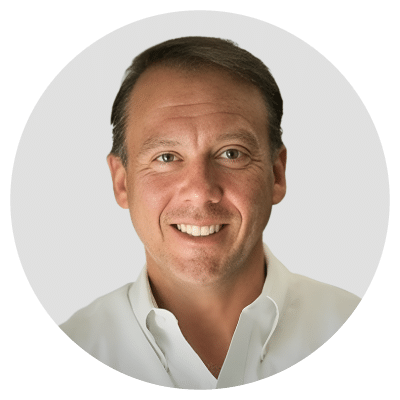
John Sanders
John Sanders, Managing Partner and CEO of Bridgeforce, has over 25 years of experience guiding financial institutions through complex operational and regulatory challenges. As a founding member of the firm, he drives client engagements in operational efficiency, regulatory compliance, change management, and risk reduction in consumer finance by leveraging Bridgeforce’s decades of real-world consulting experience.
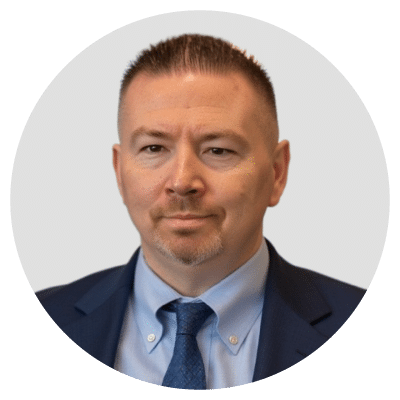
Jason Collins
Jason Collins is the Chief Operating Officer of Spring Oaks Capital, LLC. With over a decade worth of experience, he oversees the firm’s operational execution, ensuring that processes, performance, and growth initiatives align with business goals. He is focused on building efficient systems, nurturing leadership, and driving internal development across teams.

